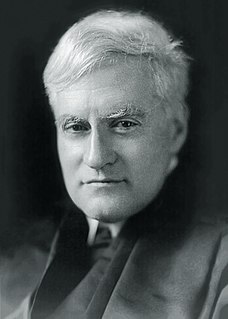A Quote by Jacob Bronowski
The Principle of Tolerance, fixed once for all the realization that all knowledge is limited. It is an irony of history that at the very time when this was being worked out, there should rise, under Hitler in Germany and other tyrants elsewhere, a counter-conception: a principle of monstrous certainty. When the future looks back on the 1930's, it will think of them as a crucial confrontation of culture as I have been expounding it - the ascent of man against the throwback to the despots' belief that they have absolute certainty.
Quote Topics
Absolute
Absolute Certainty
Against
Ascent
Back
Been
Being
Belief
Certainty
Conception
Confrontation
Counter
Crucial
Culture
Despots
Elsewhere
Fixed
Future
Germany
History
Irony
Knowledge
Limited
Looks
Man
Monstrous
Once
Other
Out
Principle
Realization
Rise
Should
Them
Think
Throwback
Time
Tolerance
Tyrants
Very
Will
Worked
Related Quotes
The one great principle of the English law is, to make business for itself. There is no other principle distinctly, certainly, and consistently maintained through all its narrow turnings. Viewed by this light it becomes a coherent scheme, and not the monstrous maze the laity are apt to think it. Let them but once clearly perceive that its grand principle is to make business for itself at their expense, and surely they will cease to grumble.
Because of its concrete content, sense-certainty immediately appears as the richest kind of knowledge, indeed a knowledge of infinite wealth for which no bounds can be found, either when we reach out into space and time in which it is dispersed, or when we take a bit of this wealth, and by division enter into it. Moreover, sense-certainty appears to be the truest knowledge ... but, in the event, this very certainty proves itself to be the most abstract and poorest truth. All that it says about what it knows is just that it is; and its truth contains nothing but the sheer being of the thing.
No man will treat with indifference the principle of race. It is the key to history, and why history is often so confused is that it has been written by men who are ignorant of this principle and all the knowledge it involves. . . Language and religion do not make a race--there is only one thing which makes a race, and that is blood.
In our worship of certainty we must distinguish between the sound certainty and the sham, between what is gold and what is tinsel; and then, when certainty is attained, we must remember that it is not the only good; that we can buy it at too high a price; that there is danger in perpetual quiescence as well as in perpetual motion; and that a compromise must be found in a principle of growth.
It is clear, then, that the idea of a fixed method, or of a fixed theory of rationality, rests on too naive a view of man and his social surroundings. To those who look at the rich material provided by history, and who are not intent on impoverishing it in order to please their lower instincts, their craving for intellectual security in the form of clarity, precision, "objectivity," "truth," it will become clear that there is only one principle that can be defended under all circumstances and in all stages of human development. It is the principle: anything goes.
While the dogmatist is harmful, the sceptic is useless ...; one is certain of knowing, the other of not knowing. What philosophy should dissipate is certainty, whether of knowledge or of ignorance. Knowledge is not so precise a concept as is commonly thought. Instead of saying 'I know this', we ought to say 'I more or less know something more or less like this'. ... Knowledge in practical affairs has not the certainty or the precision of arithmetic.




































